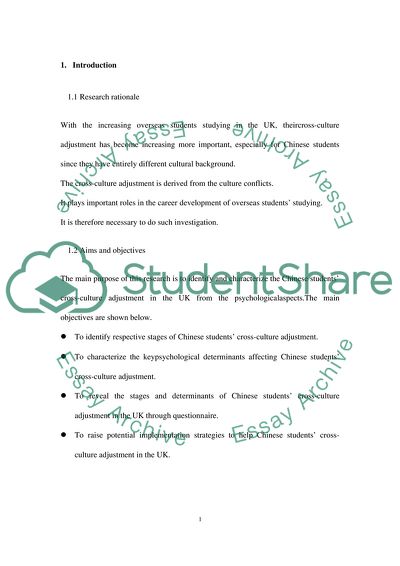Cite this document
(The Psychological Investigation of Chinese Students Cross-Culture Adjustment When Studying in the UK Literature review Example | Topics and Well Written Essays - 5000 words, n.d.)
The Psychological Investigation of Chinese Students Cross-Culture Adjustment When Studying in the UK Literature review Example | Topics and Well Written Essays - 5000 words. https://studentshare.org/psychology/1799937-the-psychological-investigation-on-chinese-students-cross-culture-adjustment-when-studying-in-the-uk
The Psychological Investigation of Chinese Students Cross-Culture Adjustment When Studying in the UK Literature review Example | Topics and Well Written Essays - 5000 words. https://studentshare.org/psychology/1799937-the-psychological-investigation-on-chinese-students-cross-culture-adjustment-when-studying-in-the-uk
(The Psychological Investigation of Chinese Students Cross-Culture Adjustment When Studying in the UK Literature Review Example | Topics and Well Written Essays - 5000 Words)
The Psychological Investigation of Chinese Students Cross-Culture Adjustment When Studying in the UK Literature Review Example | Topics and Well Written Essays - 5000 Words. https://studentshare.org/psychology/1799937-the-psychological-investigation-on-chinese-students-cross-culture-adjustment-when-studying-in-the-uk.
The Psychological Investigation of Chinese Students Cross-Culture Adjustment When Studying in the UK Literature Review Example | Topics and Well Written Essays - 5000 Words. https://studentshare.org/psychology/1799937-the-psychological-investigation-on-chinese-students-cross-culture-adjustment-when-studying-in-the-uk.
“The Psychological Investigation of Chinese Students Cross-Culture Adjustment When Studying in the UK Literature Review Example | Topics and Well Written Essays - 5000 Words”. https://studentshare.org/psychology/1799937-the-psychological-investigation-on-chinese-students-cross-culture-adjustment-when-studying-in-the-uk.


